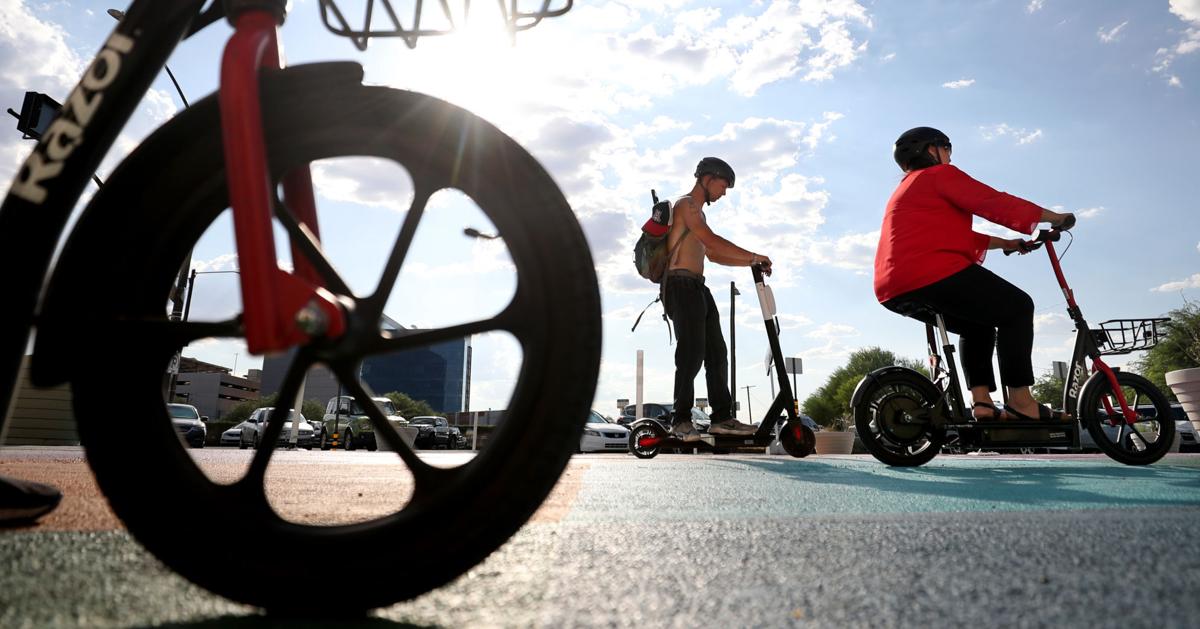One of the companies participating in the city of Tucson’s e-scooter pilot program temporarily pulled its scooters off the streets as a way to help curb the spread of the coronavirus.
In a statement, Bird said they took their efforts to “discourage non-critical mobility” and “to help flatten the COVID-19 curve.”
“Our decision to reduce the fleet size is very fluid as the response to and recommendations regarding COVID-19 evolve and is in line with voluntary, as well as mandatory, measures set by local governments for businesses,” the statement said.
“We are continuing our close dialogue with local officials in Tucson and will again offer our full fleet of safe, sustainable transportation alternatives as soon as possible. Until then, we wish everyone an abundance of health and well-being.”
Bird pulled the scooters off the streets on March 19, according to Andrew Bemis, the city’s Bicycle and Pedestrian Program coordinator. He said it’s unclear how many scooters total were removed because fleet sizes vary by day, but Bird was averaging 301 scooters each day from March 1 through March 19.
The confirmation came hours after the city’s Transportation and Mobility Department updated its ”E-Scooter Pilot Program Evaluation” to include that Bird has temporarily suspended its operations, while the other company participating in the pilot, Razor, is continuing with certain safety precautions.
Those precautions include disinfecting procedures for all field and maintenance workers, disinfecting high-touch surfaces, and urging riders to wear gloves or disinfect surfaces after their rides, according to the report. The company is also offering free scooter trips for first responders, medical professionals, grocery store or pharmacy employees.
Bemis said that Razor’s fleet averaged 421 scooters a day from March 1 through March 19, and has an average of 206 scooters since. There were 178 scooters available, as of Wednesday afternoon.
The changes ultimately come about a month after the Tucson City Council voted to extend the pilot program through September, citing a desire to collect more data regarding scooter use.
The vote coincided with the transportation department’s release of the “E-Scooter Pilot Program Evaluation,” which found that about 37,000 individuals took more than 173,000 rides in the five months since the program launched last September, with ridership peaking in the second month of the program.
Councilman Steve Kozachik, who was the lone council member to oppose the extension of the pilot, praised Bird for “doing the right thing” in stopping the scooters and urged the city to halt the program as part of coronavirus mitigation efforts. He said he’s skeptical Razor can sanitize the scooters between rides and that first responders and nurses will use the scooters to get to their destinations. He added that in the meantime he would be open to delaying the end of the pilot program.
“I’ve tried three times to get this program stopped and I’m sorry it took a pandemic to get people’s attention,” Kozachik said.
“If this council wanted to do the right thing, they would have ended this program when this pandemic started.”





